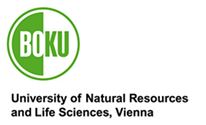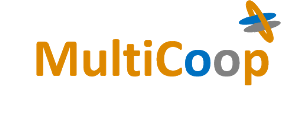
|
Vysoka skola chemicko-technologicka v Praze (VSCHT), in English University of Chemistry and Technology (UCT Prague), is the largest academic institution of its kind in Central Europe with a history of almost 200 years. Currently, UCT Prague is an educational and research leader in technical (bio)chemistry, food and chemical technologies with a wide range of national and international collaborations. The four Faculties of the VSCHT are accredited to provide three-year Bachelor programmes, two-year Master programmes and PhD programmes. The total enrolment at the VSCHT is about 3000 Master and Bachelor students and more than 800 PhD students. In addition, 3rd age university is attended by more than 200 students.
The Laboratory of Food Quality and Safety, which is a part of The Department of Food Analysis and Nutrition (DFAN), Faculty of Food and Biochemical Technology, is accredited according to the International standard ISO/IEC 17025:2005 by the Czech Institute for Accreditation. Besides of running accredited tests (data from monitoring programs are delivered e.g. to EFSA database), activities also include (i) development/application of novel analytical methods for control of emerging threats (target screening); (ii) development/application of non-target screening strategies, including metabolomic fingerprinting/profiling followed by chemometric data processing; (iii) investigation of chemical reactions in food and related matrices; (iv) analysis of novel natural biologically active components; environmental pollutants; residues, processing contaminants and natural toxicants.
Special attention is given to studies on food component interactions / breakdown which may result in changes of nutritional value and/or sensory properties. In recent years, interdisciplinary ‘omics’-based research aimed at the assessment of in vivo / in vitro effects induced by biologically active compounds, both beneficial and toxic, has been initiated.
The Department of Biochemistry and Microbiology (DBM) is active in basic research in the fields of retroviral molecular biology, proteomics, plant biochemistry a physiology, enzymology, environmental microbiology, food microbiology and bioanalytical techniques. These activities provide a platform for applied research focused on design of modern therapeutics, bio-remediations of organic and inorganic pollutants in environmental and food quality control and monitoring. The department runs a food microbiology laboratory, which is accredited to provide qualified microbial analyses of food and raw materials.
|
 |
The University of Natural Resources and Life Sciences, Vienna (BOKU) was founded in 1872 and sees itself as an education and research centre for renewable resources. BOKU is home to more than 11800 students and 2500 employees (1800 thereof scientific staff). BOKU, further structured in 15 departments is engaged in a wide range of international and national research projects.
The Department for Agrobiotechnology (IFA-Tulln) employs some 180 staff, and its mission is to conduct interdisciplinary research in the field of agrobiotechnology with particular emphasis on the quality of food and agricultural products. The research activities of Center for Analytical Chemistry (CAC) are mainly focused on the basic and applicable research in the field of mycotoxins. In line with that, state-of-the-art analytical methods have been established for: (i) targeted screening of ‘total’ mycotoxin occurrence in food and feed, (ii) untargeted screening of novel unknown plant/fungal metabolites, (iii) metabolomics profiling of plant metabolism, (iv) bio-marker studies, (v) (Q)PCR to detect fungal DNA.
The research team participated in many international projects as concern the food and feed safety and has established a lot of international cooperation. CAC closely collaborates with industrial companies active in feed and food production (Biomin, Austria; Nestlé, Switzerland; Barilla, Italy).
|
 |
Founded as Queen’s College in 1845, Queen's became a university in its own right in 1908. Today, it is an international centre of research and education rooted at the heart of Northern Ireland.
The University has won the Queen’s Anniversary Prize for Higher and Further Education on five occasions – for Northern Ireland's Comprehensive Cancer Services programme and for world-class achievement in green chemistry, environmental research, palaeoecology and law.
With more than 17,000 students and 3,700 staff, it is a dynamic and diverse institution, a magnet for inward investment, a patron of the arts and a global player in areas ranging from cancer studies to sustainability, and from pharmaceuticals to creative writing.
The Institute of Global Food Security, Faculty of Medicine, Health and Life Sciences, conducts cutting edge research into various topics ranging from soil & plant health through to food security. Internationally-recognised for its excellence in research and teaching, the Institute is a key partner in national and global efforts to provide the world’s growing population with a sustainable, safe and secure supply of high quality food.
The Institute has four undergraduate programmes, three of which contain core modules on Nutrition, Food Quality/Safety/Security. Two of these programmes run for 4 or 5 years, through to Masters Level, to include a year-long placement in a practical professional environment. Including the MSc in Advanced Food Safety, the education programmes at the Institute provide students with a full breadth of knowledge and practical experience within the area of global food security.
QUB international team consists of world renowned experts, focusing on major research themes. Researchers, working across scientific disciplines, track and prevent chemical and microbiological contamination of crops, animal feeds and foods. They have developed state-of-the-art monitoring tools to help detect fraud along the supply chain and develop advanced food provenance systems. The research will also help to improve the quality of crops, the health and quality of farm animals and their resistance to disease.
QUB team investigates toxic chemicals, such as mycotoxins, phycotoxins and plant toxins, in foods and agricultural commodities. The technology platforms researched include many forms of biosensor and lateral flow techniques. The group focuses on the early detection of manmade and naturally occurring toxins across the entire food chain.
|
 PROJECT PARTNERS
PROJECT PARTNERS









